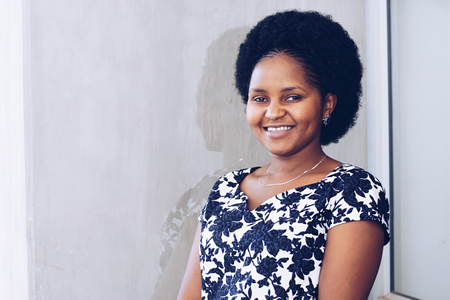The South African government announced a 21-day lockdown of the country starting on 27 March 2020, as part of measures to address the COVID-19 pandemic. Following the national directive, the University of Pretoria took the decision to close down until 16 April 2020. Being based in South Africa, and the University of Pretoria in particular, the Centre for Human Rights is directly affected by these measures.
The COVID-19 pandemic and the resulting restrictions on movement has generated considerable anxiety and uncertainty for us. We support and embrace these measures for unmistakably serving the public good, but we are also aware of their disruptive effect on our regular mode of academic and programmatic work. We have therefore made efforts to ensure continuity as far as possible, and to minimise disruption where possible. Our commitment is driven by the long-term goal of ensuring the advancement of the protection of human rights through education, research and advocacy on the African continent.
Therefore, although the country is in lock-down, the Centre for Human Rights will not shut down during this period. The staff are continuing their work from home, to the extent possible, and will remain virtually connected to colleagues, students and partners, as part of the Centre’s extended family, throughout the time. We are also adapting our projects and reorganising our calendar in line with the demands of the times.
The COVID-19 situation is constantly and rapidly evolving, which makes it hard to plan for the medium to longer-term. In the short term, we anticipate that adjustments and amendments will be needed in respect of what can be achieved (our short-term objectives) and worked on (our short-term activities). We will continue to review all our commitments as the situation evolves.
Accordingly, our postgraduate academic programmes will continue remotely. This is possible because, of the five masters programmes that we offer, two (the Sexual and Reproductive Rights in Africa (SRRA) and Disability Rights in Africa (DRIA) programmes), are already mainly conducted virtually. The dates of the physical contact block weeks for these two programmes will be reviewed in due course. Modules under the Human Rights and Democratisation in Africa (HRDA) programme, and the Multidisciplinary Human Rights (MDHR) will now be presented virtually. The biennial masters in Trade and Investment Law in Africa (TILA) Programme is not presented in 2020, and is therefore not affected. Doctoral supervision will progress virtually, as it mostly has in the past. In as far as possible, this period may also be utilised as time for uninterrupted time for research and reflection for postgraduate students and researchers.
In terms of our programmatic activities and projects, we are in the process of re-evaluating each on a case-by-case basis to determine what can or cannot be done, what can be done differently, and what innovations may be inspired by the changed circumstances. As a matter of priority, we seek to ensure that all of the Centre’s activities continue, even if in an adjusted form. For instance, we are likely to maintain the schedule of planned meetings, with the possibility of having them on virtual platforms. However, for activities that for practical purposes require physical presence, adjusted dates will be determined and announced as we get greater clarity about the trajectory of the COVID-19 pandemic.
As an institution whose core mission is the protection of human rights, we are also very much alive to the human rights aspects of the COVID-19 pandemic and the response thereto. For instance, we recognise the heightened threats to the rights to life and health, both in the short term response, but also the longer term implications for health systems and services. We also see the opportunity this pandemic presents to better understand what reasonable limitation of rights such as the right to freedom of movement entail, particularly in the face of a potentially debilitating health pandemic. It is also a moment that lays bare the insufficiencies of measures put in place to provide a safety net for vulnerable members of our society, particularly older persons, displaced persons and those with very limited resources to adequately respond to exceptional situations, especially in rural areas.
We will be in touch with our partners and funders regarding updates, including new dates for postponed events. We hope for a return to regular operations when circumstances allow. In the meantime, we wish to thank you, our partners, for your understanding, and for your continued commitment.
We wish you good health in this period. Let us all take good care of ourselves and of those around us, and let us stay connected to each other.
For more information, please contact:




